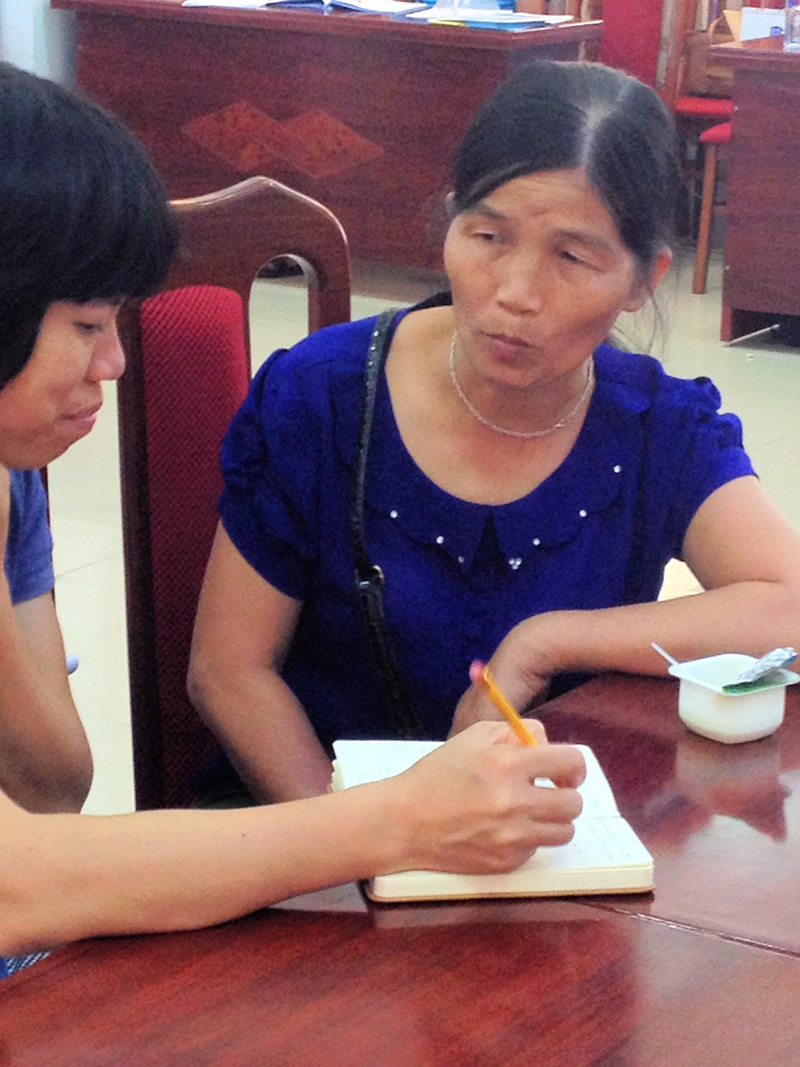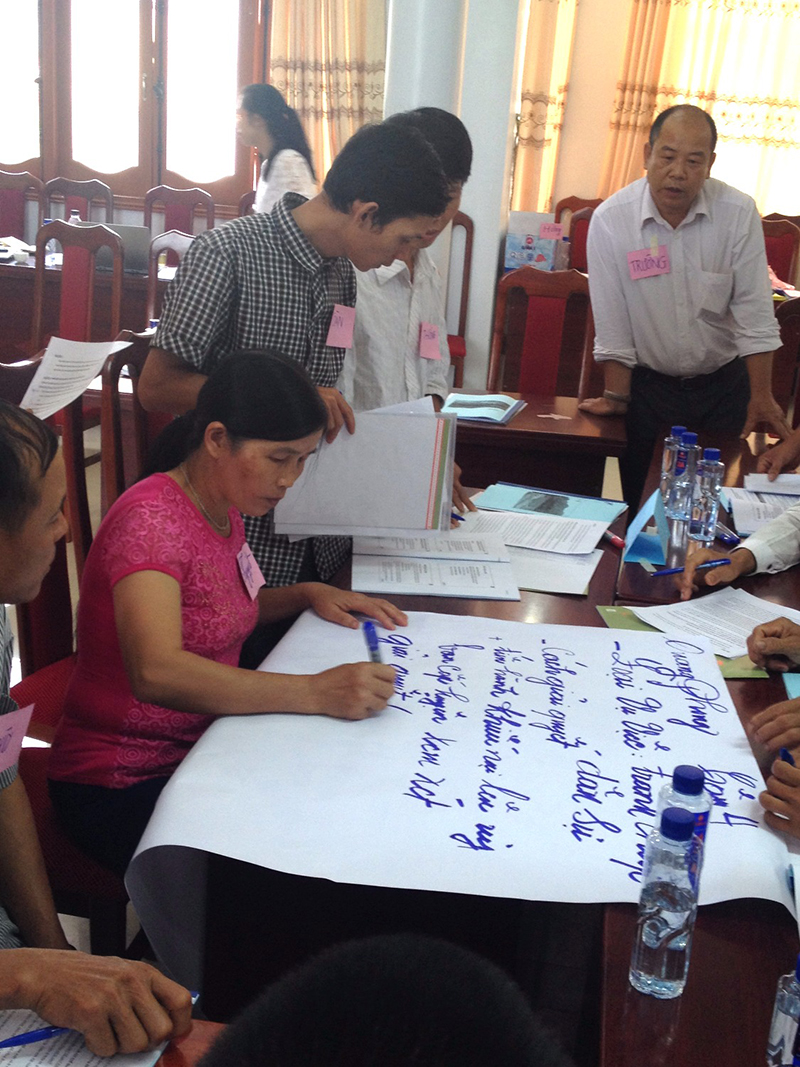“I’m the first person they turn to when they can’t resolve disputes amicably,” says Nong Thi Nguyet, a 50-year old woman and village head from the Vietnamese Na Ray village in Na Ri district, Bac Kan province, Viet Nam.
Petite Nong Thi Nquyet stands out in a room filled with members of the Commune Peoples’ Committee, mass organizations, and elected village heads. She is the sole village headwoman and speaks with the confidence of a born mediator who has won the trust and respect of her fellow villagers.
Most are from ethnic minorities – Tay, Nung and Dao. Currently serving her ninth year as Na Ray village’s elected headwoman, she takes the trust they have placed in her very seriously, spurred on by a desire to maintain harmony and unity in her village.
As the headwoman, she also leads the Grassroots Mediation Group, made up of representatives from the Womens’ Union, the police, and the Fatherland Front. This group deals with cases ranging from domestic violence to complaints of buffaloes straying onto other people’s land, to boundary and land ownership disputes.
One of the first steps is to refer to the Village Regulations, a common document of “dos and don’ts” drawn up by the villagers. Most cases are resolved amicably. However, cases related to land-use rights certificates, commonly called Red Books because of their colour, are often referred to the Commune Peoples’ Committee. If they cannot be resolved there, they are raised at the district, provincial and finally national level.

Last month, July 2016, Nguyet was in Bac Kan town attending a training with other 29 participants supported by the UN-REDD Viet Nam Phase II Programme.
The Programme aims at Reducing Emissions from Deforestation and forest Degradation (REDD), incentivizing forest owners and users for conserving forests in a sustainable manner.
UN-REDD’s training piloted the Grievance Redress Mechanism (GRM). GRMs help to receive stakeholder feedback already at an early stage and respond to it accordingly, reducing the risk of grievance for example during a project. Otherwise, this frustration could lead to delaying or blocking a project, or other negative consequences for the project.
The training, which Nguyet attended, focused on raising awareness of the steps to be taken at each point of the GRM, including how best to classify cases and decide on the best channels for resolution. Those taking part were able to practice their mediation skills through a series of practical and fun role plays.
“I have learnt about the different types of cases under the different laws and how to correctly identify them. Now, I also understand the big picture, and how my role is linked to those at the commune, district, province and national levels, as well as the processes involved. This is making me feel even more confident about dealing with the cases that I will have to deal with in the future,” said Nguyet with a big smile, as she proudly completed the training.
Gender equality is one of the four cross-cutting themes in UN-REDD’s Work Programme, including stakeholder engagement, forest governance and tenure security. Contributing significantly to the Programme’s outcomes and outputs, the themes are to ensure the achievement of anticipated results.
Learn more:

